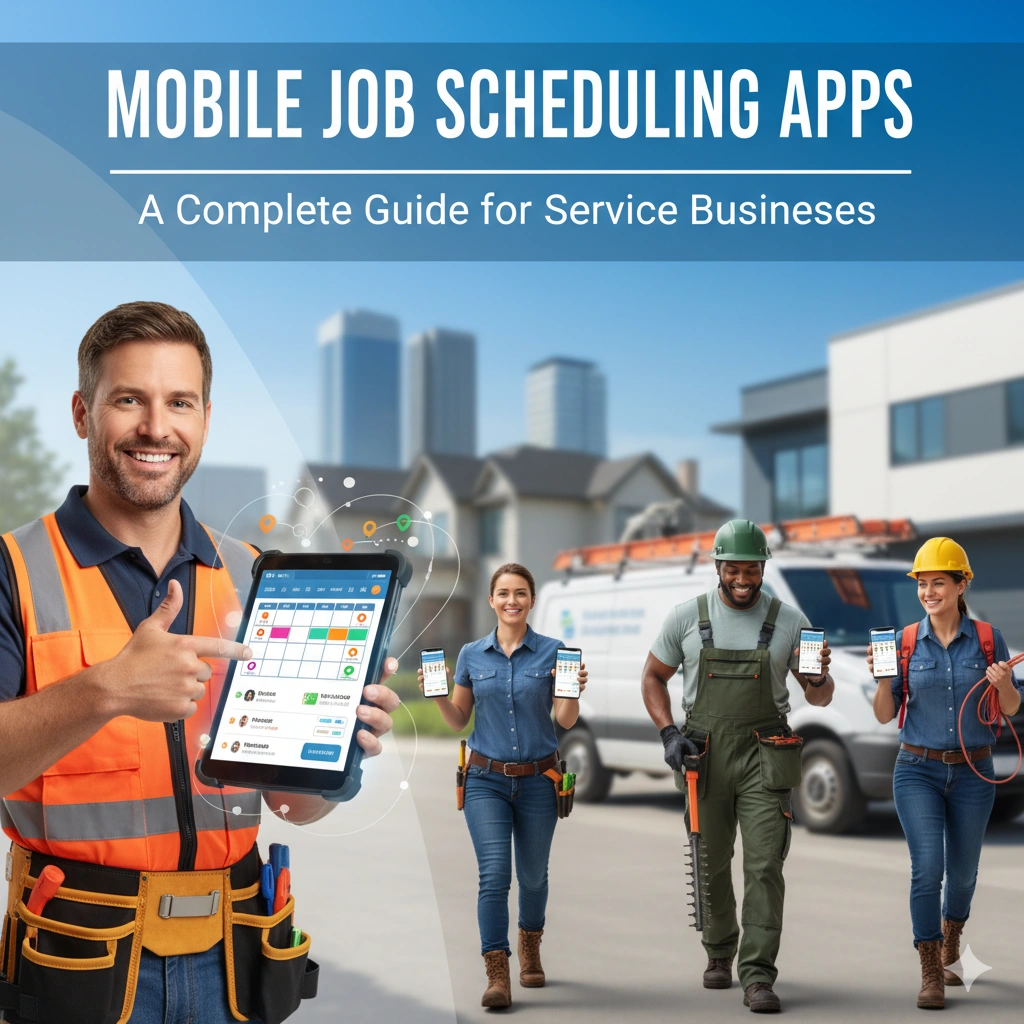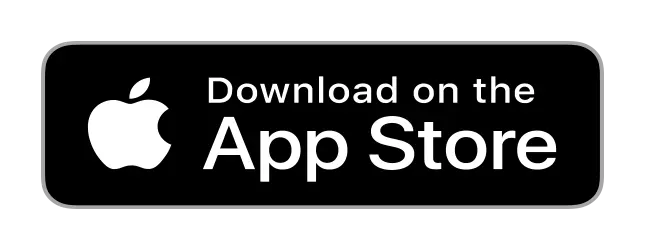
The Evolution of Service Business Management
Service businesses have undergone a dramatic transformation in recent years. Gone are the days of paper calendars, sticky notes, and endless phone calls to coordinate schedules. Today's successful service professionals rely on sophisticated mobile job scheduling apps that put the power of business management directly in their hands.
Whether you're running a lawn care service, HVAC company, photography business, or any other service-based operation, mobile scheduling technology has become essential for staying competitive. These apps don't just organize your calendar they serve as comprehensive business management platforms that handle everything from initial client contact to final payment collection.
Why Mobile Job Scheduling Apps Are Game-Changers
The shift toward mobile-first business management isn't just a trend it's a necessity. Service businesses face unique challenges that traditional desktop software simply can't address effectively. Field workers need instant access to job details, route optimization, and client communication tools while they're on the move.
Mobile scheduling apps solve critical pain points that plague service businesses:
- Real-time updates: Schedule changes, client requests, and job modifications sync instantly across all devices
- Location-based efficiency: GPS integration optimizes routes and provides accurate arrival estimates
- Instant communication: Direct messaging between office staff, field workers, and clients eliminates confusion
- Document accessibility: Photos, contracts, and job specifications are available anywhere with internet access
- Payment processing: On-site payment collection speeds up cash flow and reduces administrative overhead
Essential Features Every Service Business Needs
Not all mobile job scheduling apps are created equal. The most effective solutions combine multiple business functions into a single, integrated platform. Here are the core features that separate professional-grade apps from basic scheduling tools:
Comprehensive Job Management
Effective job scheduling goes beyond simple calendar management. Look for apps that handle the entire job lifecycle, from initial inquiry to final invoice. This includes automated job creation from estimates, recurring service scheduling, and detailed job tracking with status updates.
The best apps allow you to customize job types, set default durations, and establish service-specific requirements. For example, an HVAC business might need different scheduling parameters than a photography service, and your app should accommodate these differences seamlessly.
Client Relationship Management
Your scheduling app should serve as a complete client database, storing contact information, service history, preferences, and communication logs. Advanced apps include automated client communication features like appointment confirmations, service reminders, and follow-up messages.
Integration with client management extends to billing and payment tracking. The ability to view a client's complete financial history, including outstanding invoices and payment patterns, helps you make informed scheduling decisions and maintain healthy cash flow.
Estimate and Proposal Generation
The most efficient workflow connects estimating directly to scheduling. When a client accepts an estimate, the job should automatically populate your schedule with all relevant details, eliminating double data entry and reducing errors.
Look for apps that offer customizable estimate templates, photo integration for visual proposals, and electronic signature capabilities. These features streamline the sales process and create a professional impression that helps close more deals.
Advanced Scheduling Capabilities
Modern service businesses require sophisticated scheduling tools that go far beyond basic appointment booking. The most effective apps incorporate intelligent features that optimize your operations automatically.
Route Optimization and GPS Integration
Fuel costs and travel time significantly impact service business profitability. Advanced scheduling apps use GPS data and traffic patterns to optimize daily routes, reducing drive time and maximizing billable hours.
Some apps offer dynamic route adjustment based on real-time conditions, automatically reordering jobs when traffic delays or cancellations occur. This level of automation helps field workers stay productive even when unexpected changes disrupt the original schedule.
Resource and Equipment Management
Service businesses often juggle multiple resources beyond just personnel schedules. Equipment availability, vehicle assignments, and material requirements all factor into effective job scheduling.
Comprehensive apps track equipment maintenance schedules, vehicle capacity, and inventory levels, preventing scheduling conflicts that could delay jobs or disappoint clients. This integrated approach ensures that every scheduled job has the necessary resources for successful completion.
Automated Scheduling Intelligence
Artificial intelligence is increasingly common in professional scheduling apps. These systems learn from your business patterns, suggesting optimal scheduling based on factors like job type, location, client preferences, and historical data.
Smart scheduling features can automatically fill gaps in your calendar, suggest the best technician for specific jobs, and even predict potential scheduling conflicts before they occur. This level of automation frees up administrative time while improving overall efficiency.
Financial Management Integration
Successful service businesses understand that scheduling and financial management are inseparable. The most valuable mobile apps integrate invoicing, payment processing, and expense tracking directly into the scheduling workflow.
Automated Invoicing and Payment Collection
Manual invoicing creates delays and administrative burden that can seriously impact cash flow. Modern scheduling apps generate invoices automatically when jobs are completed, using predefined rates and service descriptions.
Mobile payment processing allows field workers to collect payment on-site, eliminating the delay between service completion and payment collection. This immediate payment capability can dramatically improve cash flow, especially for smaller service businesses.
Expense Tracking and Profitability Analysis
Understanding the true profitability of different services and clients requires detailed expense tracking. Advanced apps capture job-related expenses automatically, including travel costs, materials, and labor time.
This data enables sophisticated business analytics that reveal which services generate the highest margins, which clients are most profitable, and where operational improvements could increase efficiency. Such insights are crucial for strategic business growth.
Implementation Strategies for Service Businesses
Choosing the right mobile scheduling app is only the first step. Successful implementation requires careful planning, staff training, and gradual workflow integration.
Assessing Your Current Workflow
Before selecting an app, conduct a thorough analysis of your existing processes. Document how jobs currently move from initial inquiry to completion, identifying bottlenecks and inefficiencies that mobile scheduling could address.
Consider the specific needs of different team members. Field workers prioritize easy job access and client communication, while office staff need comprehensive scheduling oversight and reporting capabilities. The best apps accommodate these different perspectives within a unified system.
Staff Training and Adoption
Technology adoption success depends heavily on user buy-in. Involve your team in the selection process, allowing them to test different apps and provide feedback. This collaborative approach increases the likelihood of successful implementation.
Plan for a gradual rollout rather than immediate full adoption. Start with basic scheduling features and gradually introduce more advanced capabilities as your team becomes comfortable with the system. This approach reduces resistance and allows for workflow adjustments based on real-world usage.
Data Migration and System Integration
Most service businesses have existing client databases, scheduling systems, and financial records that need integration with their new mobile app. Look for solutions that offer data import capabilities and integration with popular accounting software.
Consider the long-term implications of your choice. Apps that offer data export capabilities and open API access provide more flexibility if you need to change systems in the future. This consideration is particularly important for growing businesses that may outgrow their initial software choice.
Industry-Specific Considerations
Different service industries have unique scheduling requirements that generic apps may not address effectively. Understanding these specific needs helps ensure you choose the most appropriate solution for your business type.
Field Service Industries
HVAC, plumbing, electrical, and similar trades require apps that handle emergency calls, parts ordering, and compliance documentation. Look for features like priority scheduling for urgent repairs, integration with parts suppliers, and digital forms for safety inspections.
These industries also benefit from apps that support recurring maintenance schedules, warranty tracking, and detailed service history documentation. Such features help build long-term client relationships and ensure regulatory compliance.
Creative and Professional Services
Photography, consulting, and similar creative services need different scheduling capabilities. These businesses often require project-based scheduling, deposit management, and detailed contract handling.
Apps serving creative professionals should offer portfolio integration, client collaboration tools, and flexible pricing structures that accommodate different service packages and add-on options.
Maintenance and Landscaping Services
Recurring service businesses like lawn care and cleaning services need apps that excel at routine scheduling, seasonal adjustments, and weather-related rescheduling. Look for features like automated recurring appointments, weather integration, and bulk schedule modifications.
These industries also benefit from photo documentation capabilities, before-and-after comparisons, and detailed service notes that help maintain consistency across multiple visits.
Measuring Success and ROI
Implementing a mobile job scheduling app represents a significant investment in your business operations. Establishing clear metrics for success helps justify the investment and identify areas for continued improvement.
Key Performance Indicators
Track metrics that directly relate to business efficiency and profitability. These might include average time between estimate and job completion, percentage of on-time arrivals, client satisfaction scores, and average payment collection time.
Administrative efficiency metrics are equally important. Monitor time spent on scheduling activities, invoice generation speed, and reduction in scheduling conflicts. These operational improvements often provide the most immediate return on investment.
Long-term Business Impact
The most significant benefits of mobile scheduling apps often emerge over time. Improved client communication leads to higher retention rates, better scheduling efficiency enables capacity growth, and integrated financial management provides clearer business insights.
Consider tracking longer-term metrics like client lifetime value, business growth rate, and profit margin improvements. These indicators demonstrate the strategic value of investing in professional scheduling technology.
Future Trends in Mobile Job Scheduling
The mobile scheduling app landscape continues to evolve rapidly. Understanding emerging trends helps service businesses make technology choices that will remain relevant and valuable over time.
Artificial Intelligence and Automation
AI-powered scheduling optimization is becoming increasingly sophisticated. Future apps will offer predictive scheduling that anticipates client needs, automatically adjusts for traffic and weather conditions, and optimizes resource allocation across multiple variables simultaneously.
Machine learning algorithms will analyze historical data to suggest pricing optimizations, identify upselling opportunities, and predict equipment maintenance needs before problems occur.
Enhanced Client Experience
Client expectations continue to rise, driven by experiences with consumer apps and services. Future scheduling apps will offer more sophisticated client portals, real-time service tracking, and personalized communication based on individual preferences and history.
Integration with smart home technology and IoT devices will enable proactive service scheduling based on equipment performance data and usage patterns.
Making the Right Choice for Your Business
Selecting the ideal mobile job scheduling app requires careful consideration of your specific business needs, growth plans, and budget constraints. The most expensive option isn't always the best choice, and the cheapest solution may lack essential features for professional service businesses.
Start with a clear understanding of your must-have features versus nice-to-have capabilities. Prioritize apps that excel in your most critical areas while offering room for growth as your business expands.
Take advantage of free trials and demos to test real-world functionality with your actual business data. This hands-on evaluation provides insights that feature lists and marketing materials cannot convey.
Consider the total cost of ownership, including setup fees, training time, and ongoing subscription costs. Factor in the potential savings from improved efficiency and the revenue growth that better scheduling can enable.
Mobile job scheduling apps have transformed from luxury tools to essential business infrastructure for service companies. The right app streamlines operations, improves client satisfaction, and provides the foundation for sustainable business growth. By understanding the key features, implementation strategies, and industry-specific requirements outlined in this guide, you can make an informed decision that positions your service business for long-term success.
The investment in professional scheduling technology pays dividends through improved efficiency, better client relationships, and clearer business insights. As the service industry becomes increasingly competitive, businesses that leverage mobile scheduling apps effectively will have significant advantages over those that rely on outdated manual processes.

